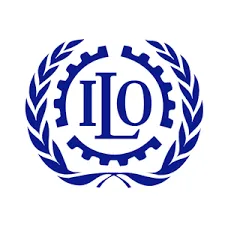EPO management fails to allow mass emails, despite ILOAT judgment
November 8, 2022
Six months after ILOAT judgment No. 4551, ruling that measures restricting mass emails at the European Patent Office were contrary to the freedom of communication and must be set aside, the EPO management has failed to execute the judgment and has tried to restrict mass emails in other ways.

In its open letter of September, the CSC wrote that two
months after the ruling of the Tribunal, it had still not been executed. The CSC pointed out: ‘We note that mailing lists for sending mass emails to more than 50 staff members, e.g. DDL-ALL-STAFF(-XX), already exist in the EPO standard email system. Such mailing lists can be easily selected from the available address book and inserted into the recipient field. However, when the sender is a Staff Committee or one of its members, sending of the email is technically blocked. The same applies upon inserting more than 50 individual addresses as recipient from the available address book.’
According to the CSC's open letter of October, despite stating ‘that the Office is committed to executing Judgment No. 4551 of the Tribunal as swiftly and comprehensively as possible’, president Campinos ‘decided to maintain the limit of the number of email recipients to 50 and to add a “new feature” as a precondition for executing the judgment, i.e. to introduce a right for staff to unsubscribe from the relevant mailing lists. You try to justify the additional constraint imposed on the CSC with the right to privacy and data protection.’
The CSC points out: ‘We note that you obviously chose to not invoke data protection and respect for private life before the ILOAT, so that there is actually no place for additional privacy pleadings at this stage.’ After setting out, among others, that the EPO Service Regulations ‘already contain provisions to protect fundamental rights and freedoms as well as personal data of employees in the course of their official activities’, the CSC concludes: ‘In short, there is no need and no legal basis for any additional limitation on our right to communicate.’
Apparently, the EPO management has proposed to hire an external service provider managing distribution lists and has sought the opinion of the Data Protection Officer (DPO) on the matter. The CSC writes it regrets ‘that her independence has led her to ignore the judgment and depart from the letter and spirit of the Service Regulations and the Data Protection Rules (DPR)’. It reiterates ‘the demand made in two previous letters for the immediate execution of Judgment No. 4551, in its entirety and without any additional obstacles, which have no legal basis or justification whatsoever.’
The EPO declined to comment.
You may also like















Simona Fonzi
The EPO is worse than Musk not tolerating workers unions at Tesla.
Concerned observer
So what is the practical consequence of the EPO disregarding an ILOAT judgement (and thereby continuing to infringe the right to association of its staff)? The AC has now been asleep at the wheel for over a decade, and has recently given up even pretending to act as the EPO's independent overseer. There would therefore seem no point asking the AC to step in to ensure that the EPO respects the rule of law. But to whom else can the EPO's staff turn? Would the EPO's blatant disregard of ILOAT judgements provide an opportunity to ask the Dutch Supreme Court to revisit their infamous judgement on the EPO's immunity from suit? I have my doubts. In any event, it is interesting to observe how an international body tasked with implementing laws can effectively "go rogue" (by failing to uphold the rule of law, rendering their governing laws meaningless by interpreting them according to their wishes, etc.) without giving rise to even the slightest signs of concern amongst the member states. And yet this is the very organisation that will soon be entrusted with even more powers (regarding "unitary" patents). Given the weaknesses and flaws in the governance structure of the UPC (even compared to the EPO), I shudder to think what might happen if that organisation were to similarly "go rogue".
Enough is enough
The present attitude of the head of the EPO illustrates best that immunity is considered as giving impunity when refusing to apply a clear judgement of the ILO-AT. It actually boils down to contempt of court when a further condition is added which has never been envisaged by the court. If people do not like messages from the staff representation, there is a delete button on every keyboard. The attitude of the head of the EPO and its minions is despicable. But he has the support of a majority of the AC. One actually wonders why? If one knows that the DPO is employed on a contract basis, one cannot expect a document emanating from the DPO being contrary to the wishes of the president. I am convinced that it is not the DPO who has thought of this extra hurdle but the (un)human resources management. What is going on at the EPO is tragic, and the success story of the EPO is getting ruined by pseudo managers who think they can act as if we were still in the 19th century. How can anybody expect that examiners and their immediate support staff can work with a free mind in such atrocious conditions. I am not surprised that the EPO experiences difficulties in recruiting examiners.